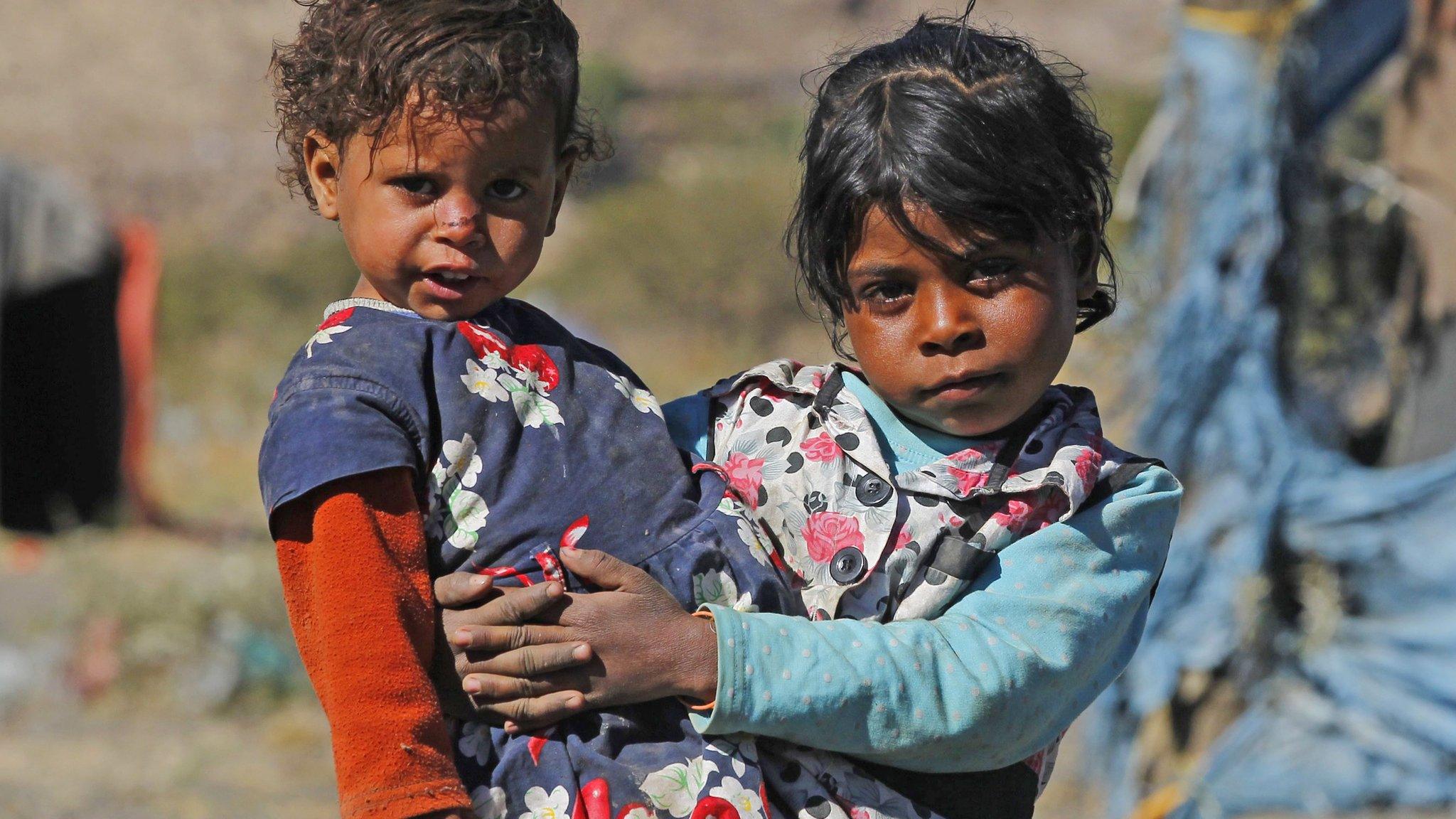Why are so many migrants coming to the UK by boat?
- Published
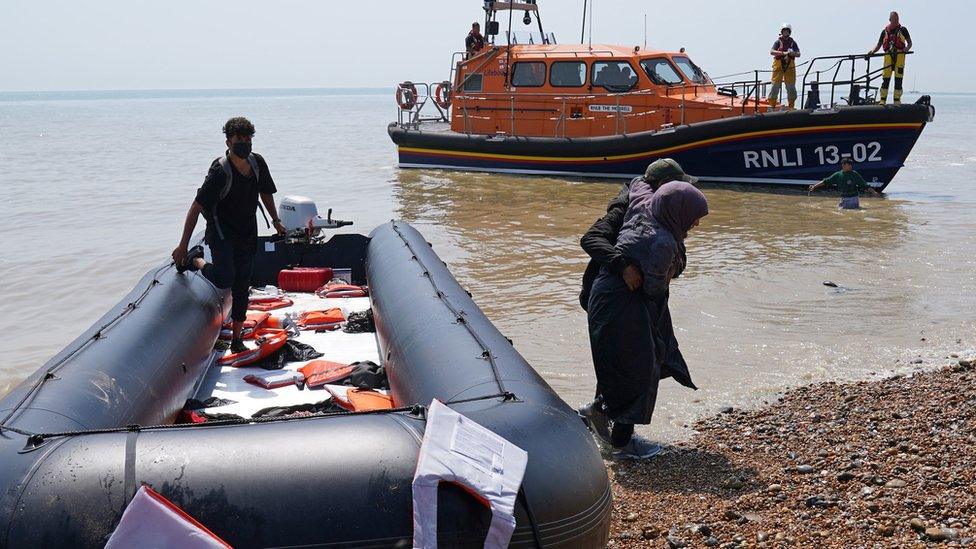
A dinghy's arrival being watched over by the crew of an RNLI lifeboat
The Government has announced a deal with France to try to stop migrants travelling to the UK in small boats.
Many migrants try to cross the English Channel - the stretch of water between England and France - in small boats or dinghies.
As part of the agreement, France has said it will double the number of police patrolling its beaches, which is where many migrants leave from.
Migrants have different reasons for trying to come to the UK - some are asylum seekers, who have fled war or persecution in their home country. Others are coming to the UK illegally in hope of finding more opportunities.
Many come from countries like Syria, Afghanistan and Iraq where many homes have been destroyed and people made homeless due to fighting.
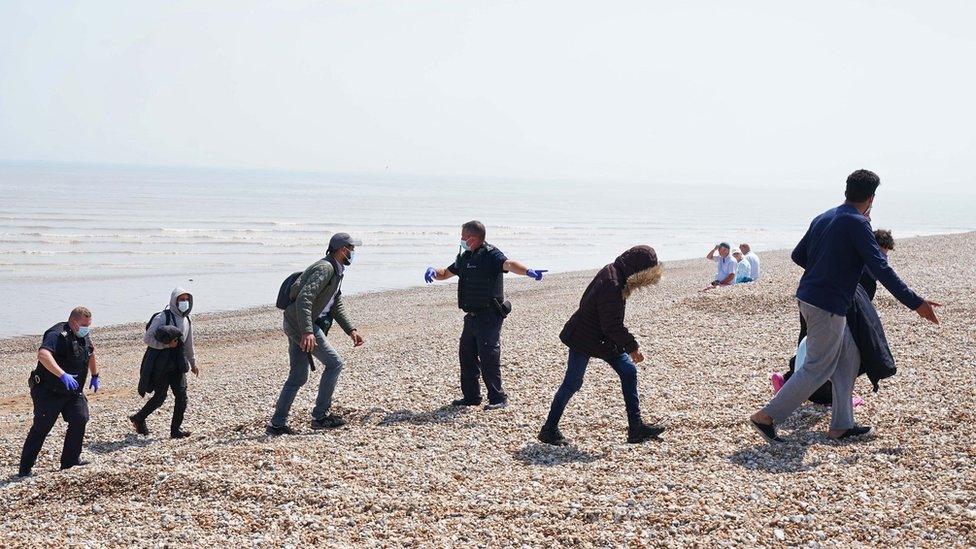
A group of people, thought to be migrants, are escorted by Border Patrol in Dungeness on Tuesday
How many migrants travel to the UK this way?
On Monday 19 July, at least 430 migrants crossed the Channel, including children. That is the highest ever figure for a single day.
The previous record was in September 2020, when 416 migrants are believed to have crossed.
Already the total number of migrants crossing the English Channel this year has overtaken 2020's figure, which was 8,461.
However, in 2019, a total of around 45,000 people sought asylum in the UK. So, those coming by dinghies and small boats are only part of the overall number.
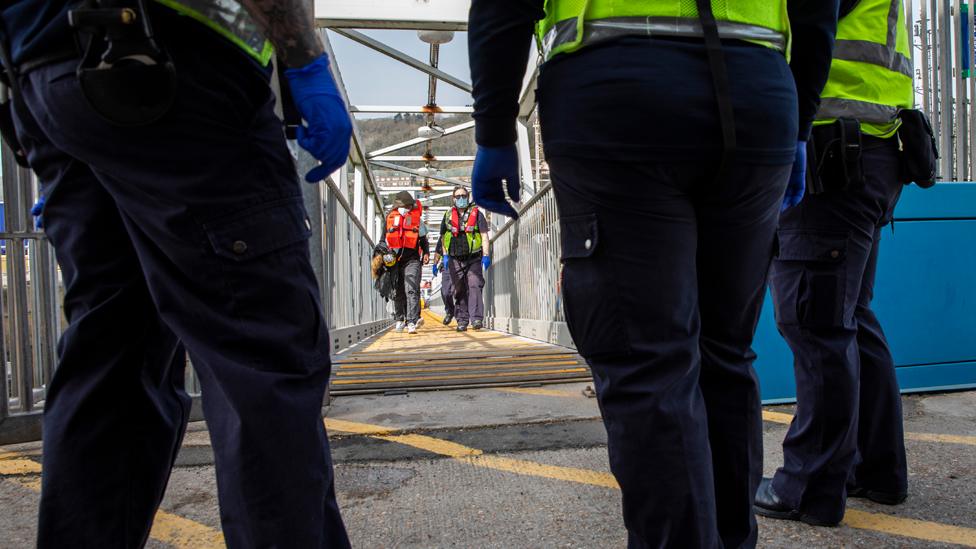
Why are so many choosing this route at the moment?
This route is often used by migrants who have made it to mainland Europe but want to travel on to the UK and reach the port of Dover in Kent, south east England or other places along the coast like Dungeness, also in Kent.
The numbers change with the seasons. Numbers are usually higher in summer months as the weather is better and the seas are calmer, which means travelling seems safer. Travelling by boat can also be seen by migrants as less risky than other options, such as hiding in lorries, containers or trains.
But crossing seas in things like dinghies or small boats is very dangerous. Also, most migrants have to pay large amounts of money to criminal gangs to make the journey across the channel.
The waters these migrants are attempting to cross is one of the busiest shipping lanes in the world, meaning their are very large boats travelling in the area, while the boats people are making the journeys in are often very small and unsafe and the water is very cold.
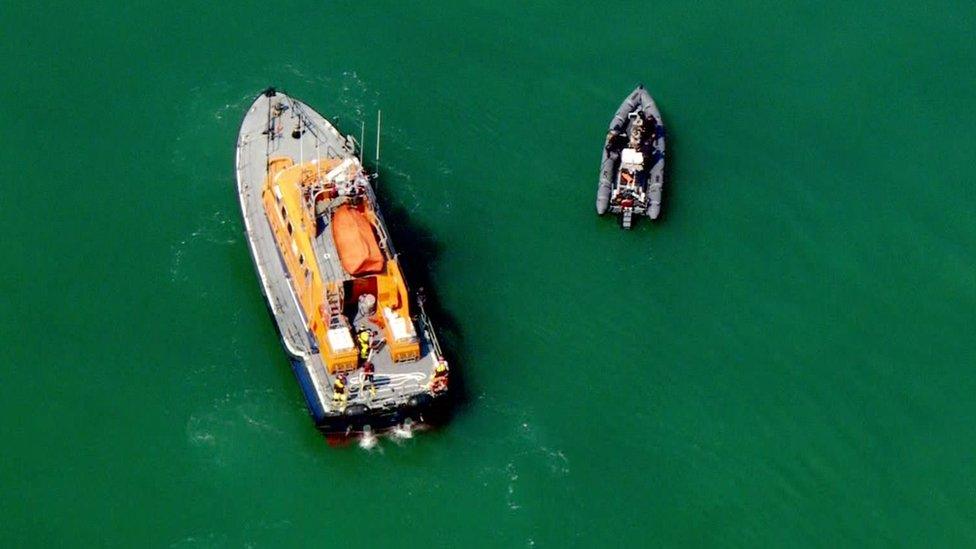
An RNLI lifeboat assisting with the arrival of a small boat on Wednesday
What happens when they get here?
Many of the migrants crossing the English Channel claim asylum once they arrive in the UK. Asylum seekers hope to receive refugee status, meaning they can stay in the UK.
They must prove they cannot return to their home country because they fear persecution because of things such as their race, religion or political opinion.
Decisions are made by a caseworker, who works for the government. They look at things such as the country of origin of the asylum seeker, or evidence of discrimination.
This is supposed to be done within six months, although many asylum seekers wait longer for a decision.
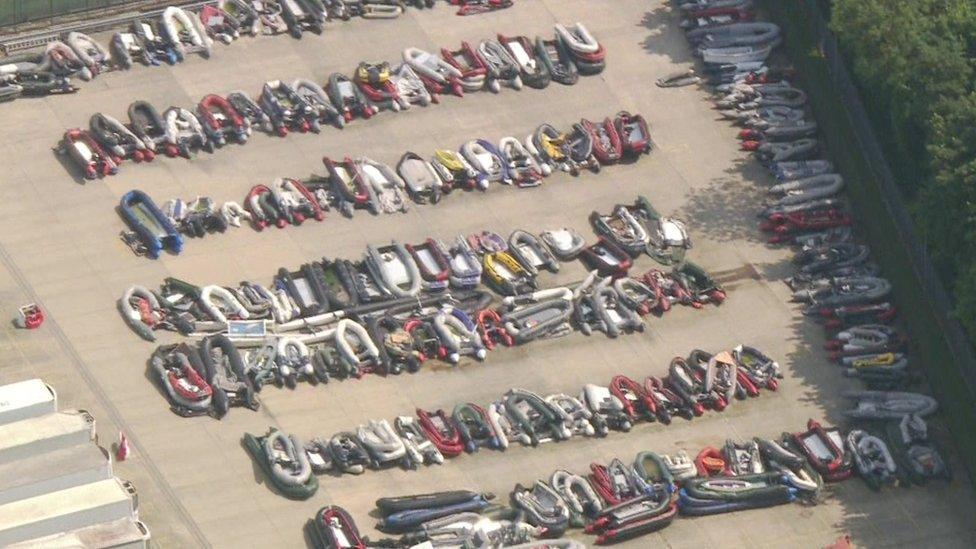
There are dozens of small boats in storage in Dover
Why do people see it as a problem?
As well as the danger migrants are in trying to cross such a busy stretch of water in small unsafe boats, the government wants to keep a control of who is entering the country and it is harder when people enter this way.
MPs are currently looking to change the laws about migration and asylum seekers, hoping to put people off from trying to enter the UK in this way.
The Home Secretary, Priti Patel MP, hopes new plans to work with France will stop people crossing. She says new funding from the UK will help French officials "respond by posting more security forces further up the coast, installing and utilising the latest surveillance equipment throughout northern France."
Some French politicians have said the French coast is too long for them to completely protect; "We have too many kilometres of shore to monitor," explained French MP Pierre-Henri Dumont.
A recent survey found that most Britons support tougher measures on people entering the country illegally. The poll by YouGov - who asked almost 2000 adults what they thought about migration issues - found 61% believed that a migrant who comes to the UK from a 'safe country' (for example France) shouldn't be allowed to stay in the UK as an asylum seeker.
However, the UK's plans to stop people entering the country have been criticised by charities including Refugee Action, which has called them "extreme and nasty". Charities are concerned that people in need of help from the United Kingdom may not be able to get it if the country's rules become tougher.
- Published13 August 2020
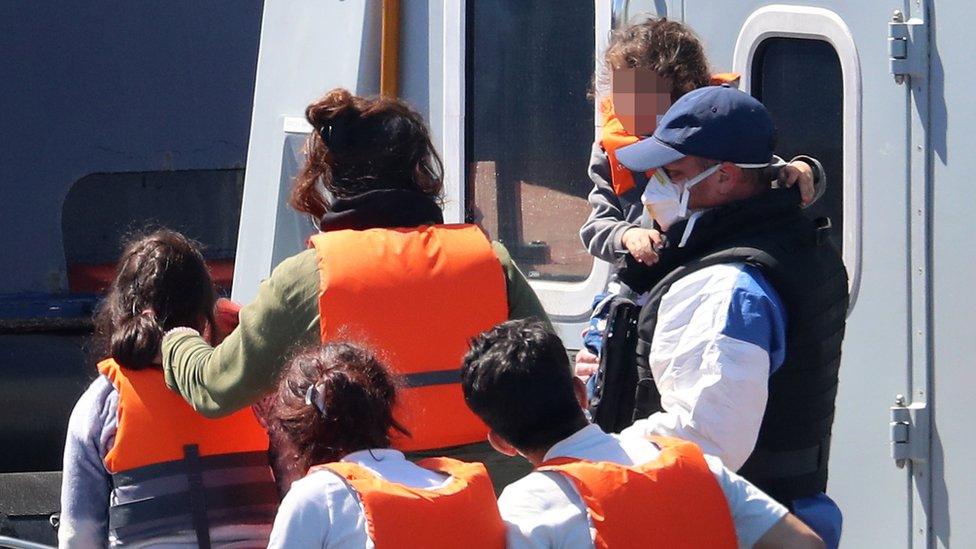
- Published15 November 2021
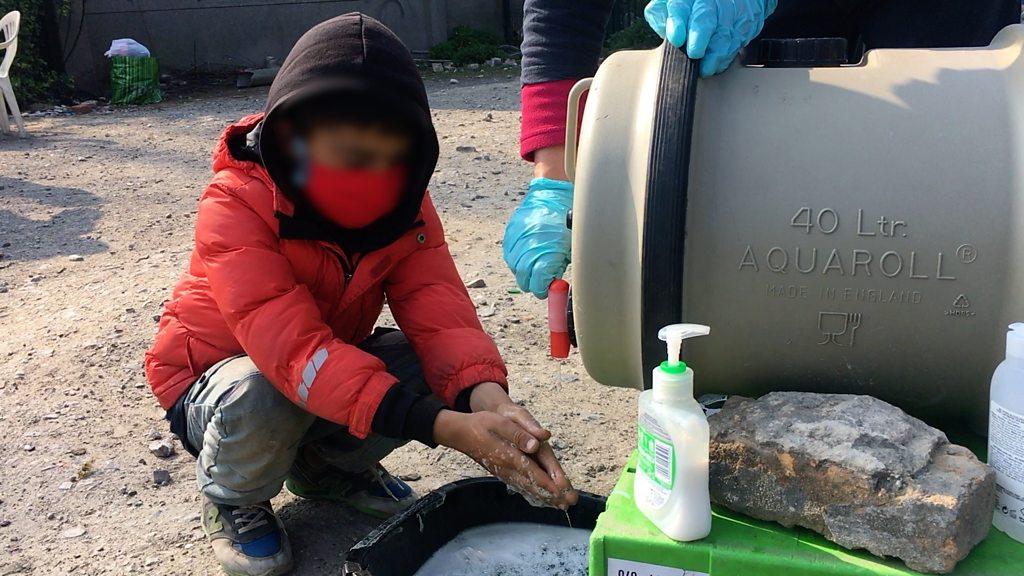
- Published20 June 2023
